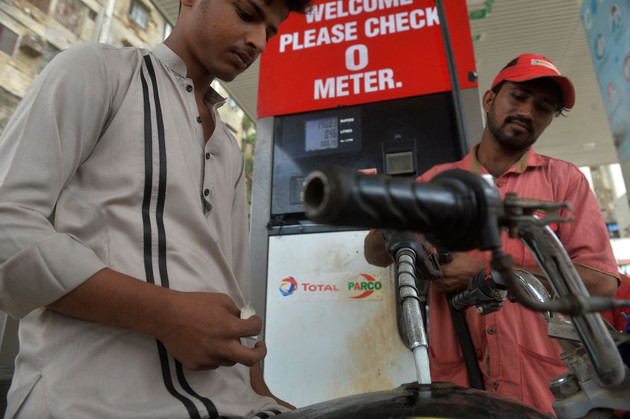Developed countries “could mobilize the trillions needed to respond when they wanted to,” said Ahmed, “so you really do see a lack of coherence.”
Many critics also worry that Biden’s new development initiatives won’t look much different from the past. Even as they acknowledge the failure of austerity policies linked to previous World Bank and IMF programs, the administration stresses that new projects will still have many stipulations for receiving nations on topics like anti-corruption, transparency and other governance issues.
“Biden has talked about spending on public goods, but for every dollar the IMF has encouraged poor countries to spend on public goods, it has told them to cut four times more in austerity,” said Ahmed, quoting a recent Oxfam study. “You’ve got the U.S. pursuing more progressive economic policies at home whilst rubber stamping austerity abroad, and that’s a massive contradiction that needs to be resolved.”
Those critics also worry about a deeper issue — that Biden’s new development policy will simply impose different, green-tinged conditions on aid. It’s a concept economists like Gabor call “green shock therapy” — after the swift neoliberal “shock” reforms that Western institutions imposed on developing countries.
“What worries me about the IMF is not that it’s not willing to fulfill the kind of geopolitical promises of the Biden administration,” said Gabor, “but that it will become an instrument for forcing developing countries into some kind of disorderly decarbonization.”
Some of those fears may be realized in Pakistan, Gabor said, where the government recently cut fuel subsidies in an attempt to secure an IMF bailout.
“The IMF is pushing for a reduction in subsidies to fossil fuels,” Gabor said. “These are very important subsidies — not for industrial development, although they are part of it — but they are very important subsidies for standards of living at the bottom of the income distribution.”
The IMF rejects critiques of a new “green conditionality” on loans, saying it has always targeted fossil fuel subsidies like those in Pakistan for reform in lending packages. A spokesperson said the Fund has mounted an “unprecedented” response to Covid and Russia’s war, approving more than $300 billion in loans to 96 nations, including 57 low-income countries since March 2020.
“We are exploring reforms to our lending toolkit, including adjustments to precautionary instruments to better suit the needs of our membership,” the spokesperson said. “We are also looking at ways to better account for how climate change affects debt sustainability and to enhance our support for countries hit by climate related shocks.
That explanation rings hollow to economists like Gabor.
“The IMF will always say that there is some targeted support for the poorest of the poor, but in my research experience, any of those policies usually in practice mean there is some loss of support for the poor,” she said. “It doesn’t improve or even preserve their existing condition. So I’ve been skeptical.”
Even so, the administration insists that its efforts are being welcomed by trading partners around the world — that they are eager for the U.S. to get back involved as an alternative to China.
“We hear from developing countries and emerging markets and around the world that they want to partner and they want America to be a leader in this space,” the White House official said.
The degree of that support will soon become apparent. After Biden lays out his development reforms at the G-20, he will soon welcome many trading partners leaders to San Francisco for the Asia-Pacific Economic Cooperation forum summit in November. That’s also when the administration hopes to finish up the broad outlines of its Indo-Pacific Economic Framework, and confront Chinese President Xi Jinping about his nation’s lending — should he decide to attend the forum. Supporters of Biden’s agenda stateside hope that at the very least, trading partners will see the administration’s efforts as a first, good-faith attempt to correct the problems that previous U.S. policies have caused.
“Reforming these institutions is a big job,” said Duss. “So this is like the very first step of recognizing you have a problem.”
Part of an occasional POLITICO series: The Changing Landscape of Global Trade.


